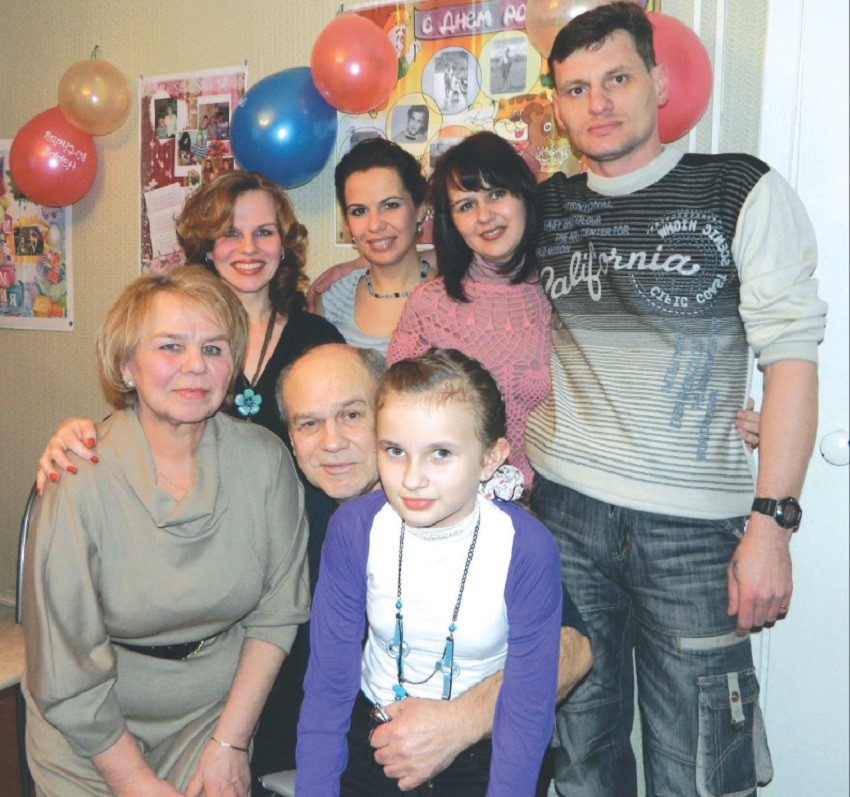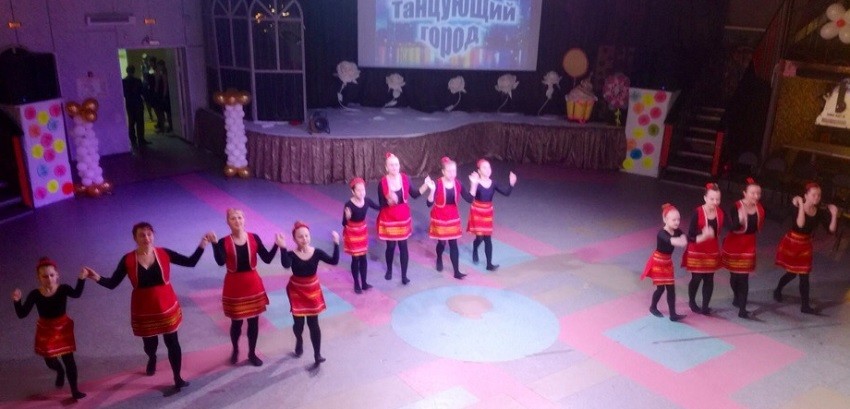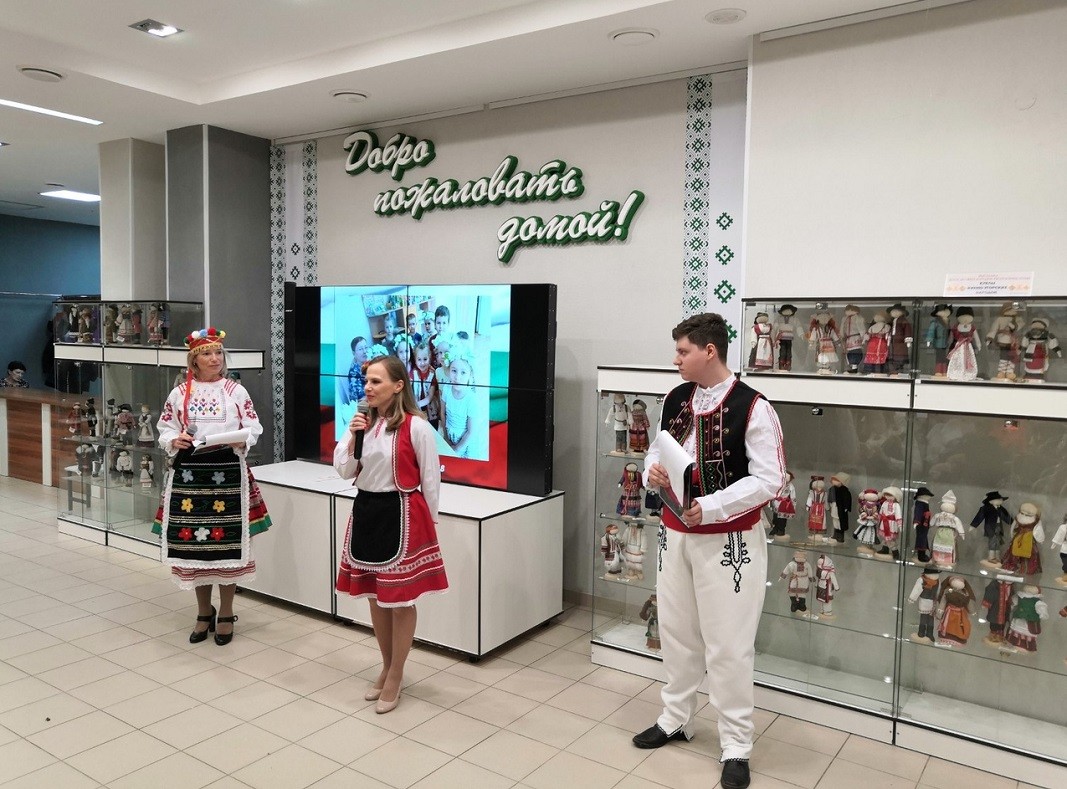In 1967 the USSR and Bulgaria sign a contract for joint logging with the Autonomous Komi Republic. For a quarter of a century, bound by this agreement, around 100 thousand Bulgarians live, work and study in Komi. Owing to them, the republic is able to acquiretowns and villages with schools, cinema theatres, asphalt-paved roads, bridges and even culinary recipes. Along with all these improvements, Komi is left with something else – a community of 500 Bulgarians, who decide to continue their lives in the faraway northern land. One of them was the father of Galina Kostova, chairman of the Bulgarian national-cultural autonomous association in Komi. He arrived in the town of Usogorsk in 1974 and as it turned out, he did not go there for “the big money” only. There he found his future family – a girl from Komi, whom he married, and became a father of three. Do they feel Bulgarian blood running in their veins?

“I love Bulgaria and yes, I perceive myself as a Bulgarian,” Galina answers without thinking. “My father is Bulgarian. I was born in the Bulgarian town of Usogorsk, surrounded by Bulgarians, Bulgarian speech, music and culture – all of this is a fundamental part of us, just like it is for the natives in Bulgaria.”
Today, Galina Kostova is a Bulgarian-language teacher in the State University of Syktyvkar, the capital city of Komi Republic. She says that in her years of practice she has not met a single student who has gone through serious difficulties when studying Bulgarian.
Galina Kostova is actively involved in community work as well. Ten years ago, during a meeting in Syktyvkar, the Bulgarian minority representatives decided to unite and form the “Bulgarian national-cultural autonomous association”. Galina Kostova is chairperson of the public organization. What are her tasks?

“Our main goal is to preserve the Bulgarian seed, tradition and culture in those who remained here in Komi and their children and grandchildren,” says the chairman of the Bulgarian national-cultural autonomous association. “We maintain and disseminate the cultural heritage of Bulgaria. We are demonstrating her beauty, originality and yet a seeming resemblance to Russian culture.”
According to the last census from 2010, around 500 ethnic Bulgarians still live in Komi. However, as Galina Kostova explains, the statistical models of the census consider valid the official citizenship and not the nationality. “I believe that there is far more of us than known. The more I work for the autonomous association, the more people I meet who are related to Bulgaria,” she explains.
Do Bulgarians in Komi keep any connection to Bulgaria?
“The spiritual connection is always present, of course. We visit Bulgaria from time to time and communicate in Bulgarian between us. I think that everyone, even if living in a foreign country, feels the same spiritual connection towards their own motherland. We keep the traditions.”

What about the children and grandchildren of those Bulgarians who came half a century ago and remained there, in the Russian north - do they preserve their identity?
“It all depends on the family situation,” Galina explains. “I can guarantee it about children who were born and live in the Udor district. We all know Bulgarian, but not everyone can fluently speak it.”
Under Galina Kostova’s initiative, a number of theme meetings were held, including the intellectual game “Bulgaria - so far and yet so near”, “Bulgarian poetry nights”, as well as a master class for youngsters and adults in making martenitsas and kukeri masks. What is more, the vocal-choreographic ensemble “Divna roza” (Beautiful Rose) owes its creation to Galina, too. People of all ages can join it, the repertoire is entirely Bulgarian.
There is more – not so long ago, in faraway Komi, a museum of Bulgarian history and culture opened its doors, shares Galina Kostova with pride.

“We endeavoured to display as much as possible – the history of all Bulgarian lands, crafts, cuisine, traditions like the martenitsas and kukeri, embroidery – everything. We are demonstrating the richness of the Bulgarian cultural heritage in all fields. We have our story to tell.”
About support from Bulgaria:
“Yes, we do feel supported,” she tells with certainty. “The President’s administration has sent us national costumes. We also received two luxurious Bulgarian language textbooks from the town of Lovech, which will be displayed in the museum. Last year they gave us twelve traditional Bulgarian costumes. Lovech and Syktyvkar are two towns-sworn brothers (twin towns). I would like to add something about the support from the Bulgarian nation - when I share on Facebook information about an upcoming event or how it went, there is an immediate wave of positive energy from warm, supportive, beautiful words.”
Due to the current circumstances of the Covid-19 pandemic, which has not spared Komi as well, the activity of the Bulgarian national-cultural autonomous association has adopted a remote mode of operation. Special attention needs to be devoted to the association’s participation in the “Thank You, Doctors” campaign - in April when the protective masks were still in deficit, the Bulgarians in the Komi Republic began producing additional masks as a donation to hospitals in Syktyvkar.
English version Boris Totchev
Photos: courtesy of Galina KostovaThe President of the Republic of Bulgaria Rumen Radev has congratulated all Bulgarians at home and around the world on the arrival of the New Year 2025 and wished them peace, health and prosperity. "The world is sending off a year..
Traditionally, the citizens of Sofia and guests to the capital can welcome the New Year 2025 together at the central Knyaz Alexander I Battenberg Square. The celebration today, December 31, begins at 21.30. Some of the most popular Bulgarian pop and..
On the eve of the New Year, the most beautiful "gelina" bride of the last 4 years is chosen in the Bulgarian-Mohammedan village of Ribnovo, in south-west Bulgaria. "Gelina" is the name given to brides in the region. It is a unique tradition, where..
Romania becomes the largest natural gas producer in the EU Romania was the largest natural gas producer in the EU in 2024..
For the 21st consecutive year, Simitli is hosting one of the largest masquerade festivals in Bulgaria. Originally a local entertainment, "Simitli - The..
The connection between Bulgaria, "Dali's Moustache" and Picasso is a topic that could remain widely discussed in the next few years, and perhaps even..

+359 2 9336 661
